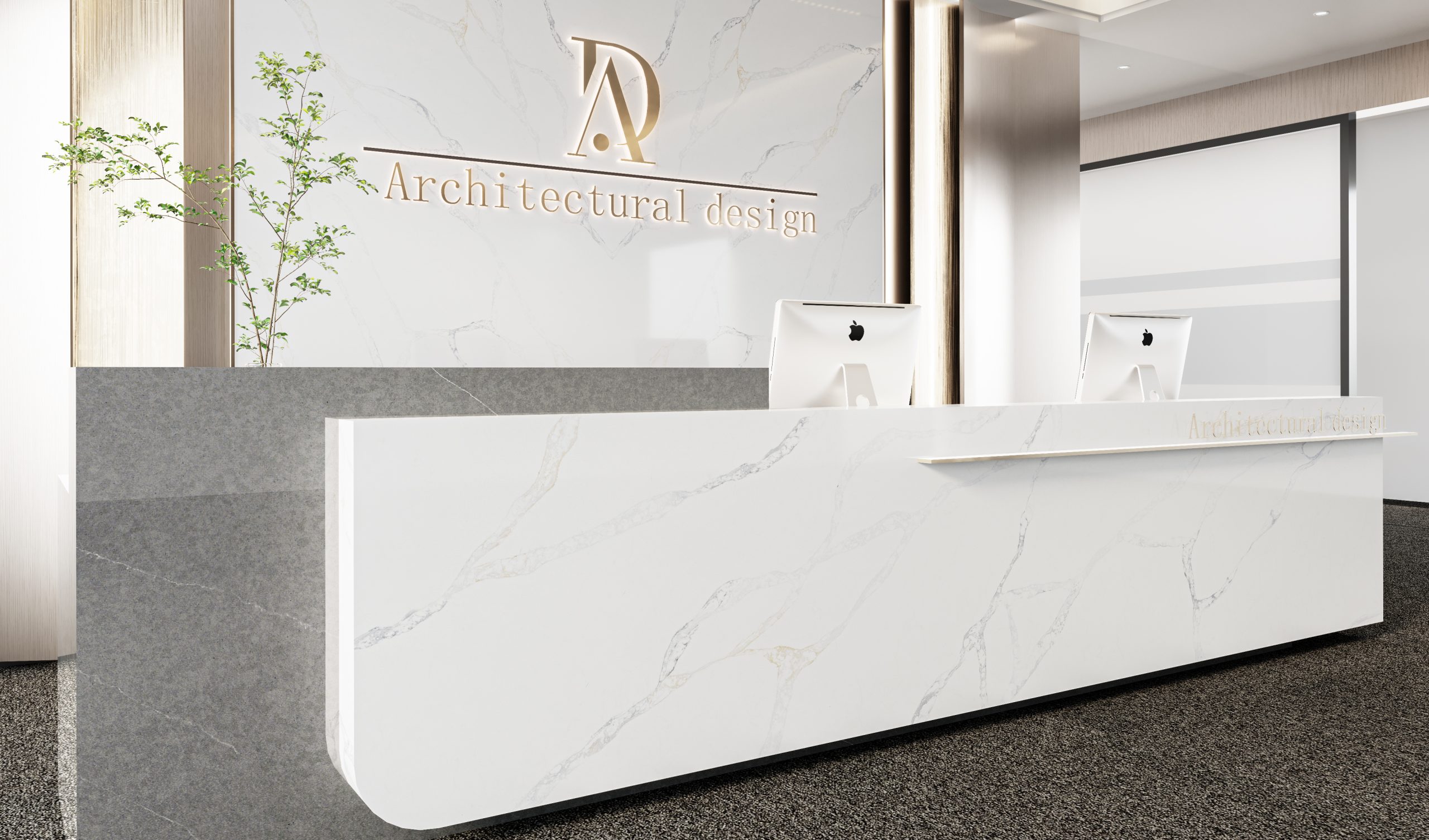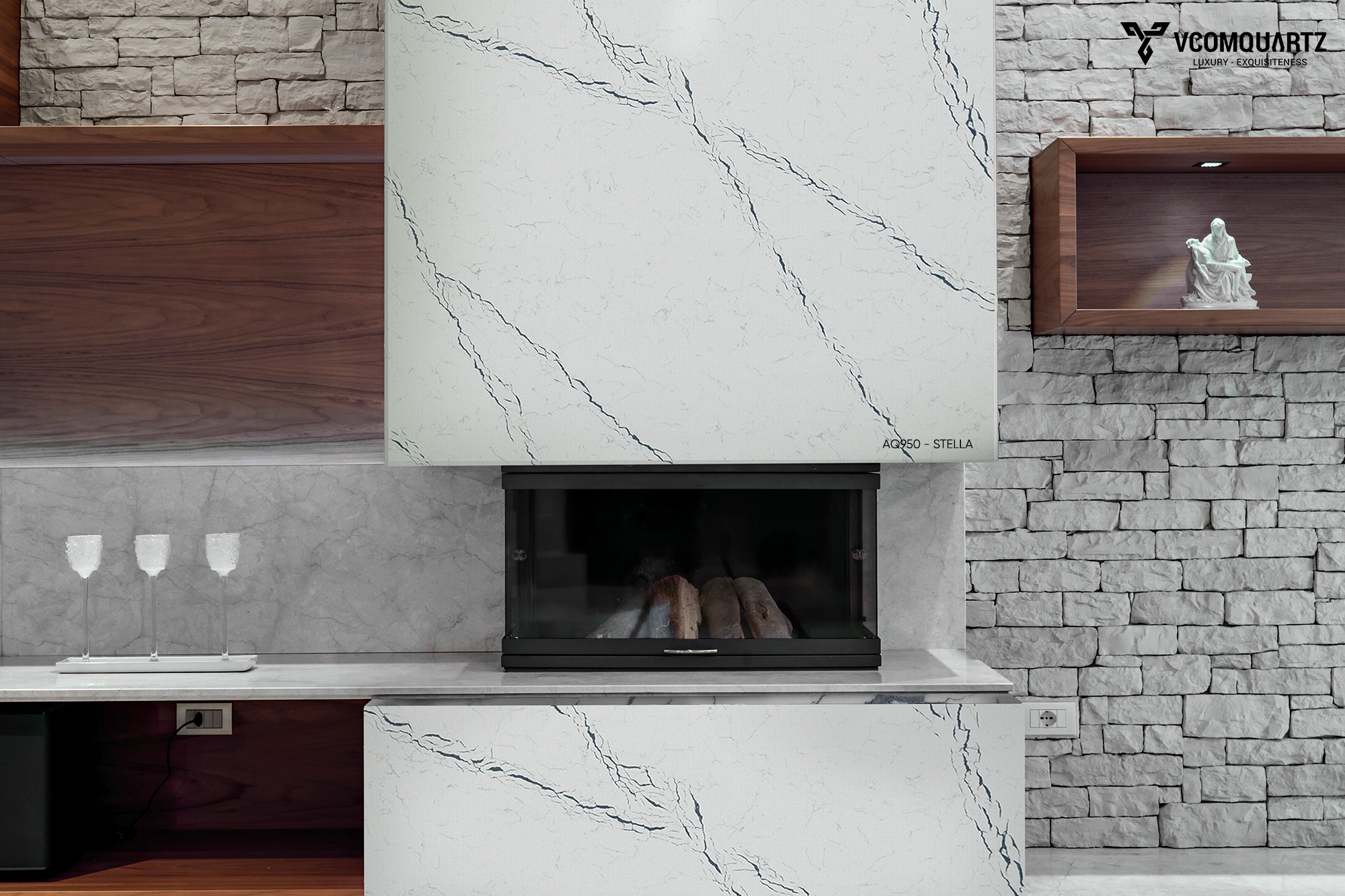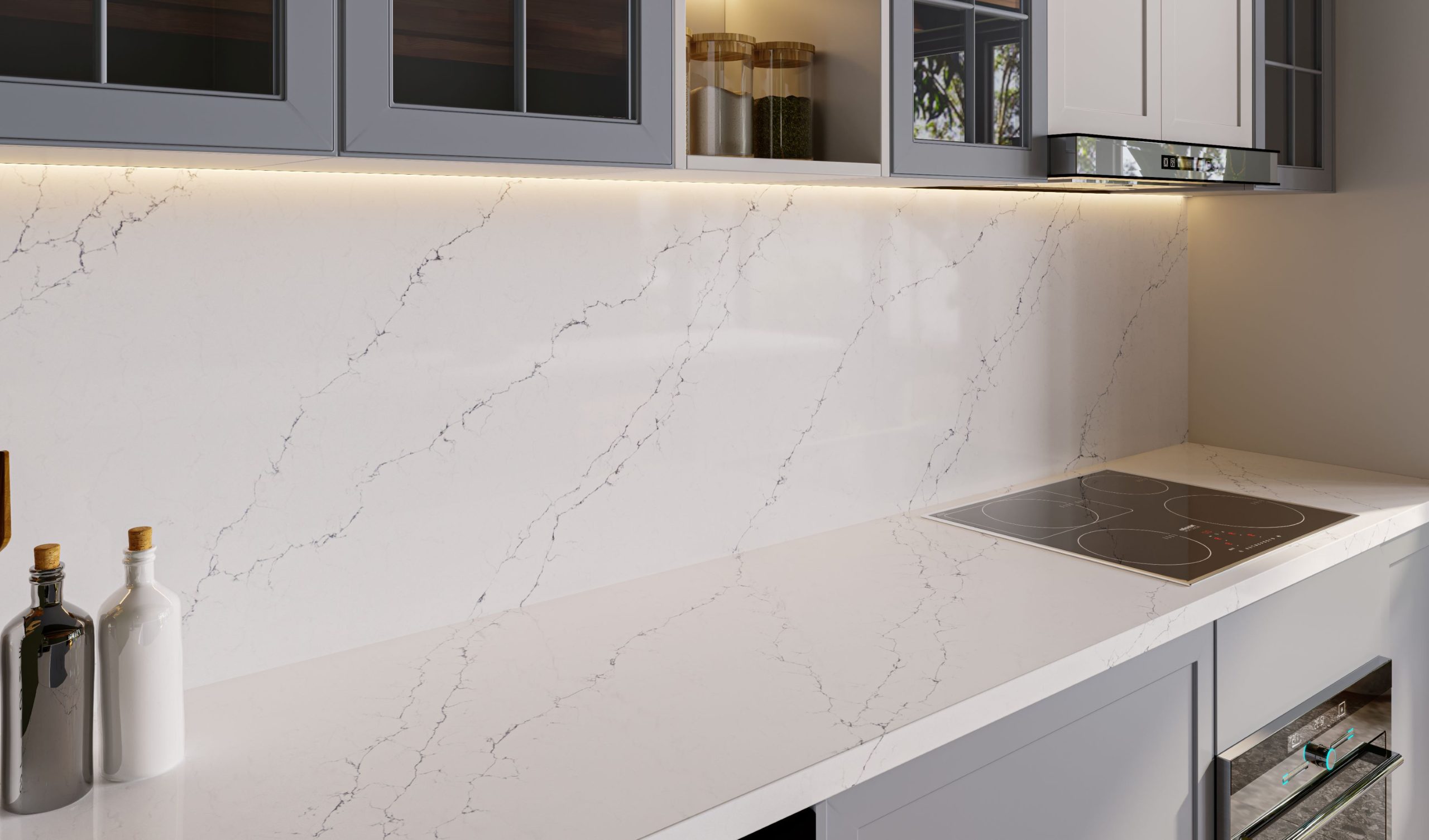Artificial quartz stone has become a popular interior decoration and cladding material in the past 5 years and has not shown any signs of cooling down. The stone is more durable, sturdy, and has a wider range of styles and designs than natural stone. When applied in practice, artificial quartz stone cladding surfaces do not require elaborate, complicated annual maintenance. Therefore, the product is suitable for the needs of many families.
However, following proper surface cleaning instructions is essential to keep artificial quartz stone in perfect condition. Here are some suggestions from Vcomquartz for reference.
Benefits of using artificial quartz stone kitchen countertops
Vcomquartz artificial quartz stone is a combination of 90% natural quartz stone powder with polymers, binders, and other color additives. After being combined according to a specific formula for each stone sample, this mixture is poured into a mold to form sheets of a fixed size and goes through many processing stages to increase its strength, water resistance, etc. Finally, they are quality inspected, polished or frosted to complete.
Thanks to such a meticulous production process, artificial quartz stone is extremely durable. The stone surface has a perfectly smooth gloss, is waterproof, heat resistant, impact resistant, scratch resistant, and easy to clean stains when used.
How to clean artificial quartz stone kitchen countertops?
If the kitchen countertop is used frequently, you should clean the stone surface daily or 02 days / time. This habit will help keep the kitchen clean as well as prevent stains or discoloration on the stone surface.
The most effective way to clean daily is to use warm water, a soft cloth, and a mild pH cleaner. To get started, pour warm water into about half a bowl, then add a little liquid dish soap and stir until the solution is completely dissolved in the water. Wipe the kitchen countertop in a circular motion with a soft cloth. When the surface is clean, wipe it again with a cloth and clean water, then dry the kitchen countertop with paper towels or a dry cloth.
A mixture of vinegar and water can also be used as a daily cleaning solution. You mix water and vinegar in a 1:1 ratio and stir well, then use a soft cloth to wipe the entire surface in a circular motion. Wipe again with a cloth and clean water, finally finish by drying with paper towels or a dry cloth.
Glass cleaner can also be used in some cases, but not all types are suitable for artificial quartz stone. You should not use glass cleaners containing ammonia as it can dull the stone surface over time.
Before proceeding to wipe the kitchen countertop, remove dry stains such as food, drinks, or glue as soon as possible.
Treat rust stains
For stains or rust, the experience is that you should treat it as soon as possible. Industrial cleaning alcohol can be used as a solvent to remove glue, felt-tip ink stains, or blood stains. How to do it:
– Pour a small amount of rubbing alcohol onto a clean cloth
– Wipe the stain in a circular motion
– Wipe again with a clean cloth and warm water
– Dry completely with a cloth or paper towels.
For stains caused by soap or old water deposits, you should use a solution of water and vinegar mixed in a 1:1 ratio as instructed above.
Also, be careful when using the above cleaning methods by testing it on a small area before wiping it on the entire stone surface. When unsure about the effects of cleaning solutions, always be sure to follow the manufacturer’s instructions.
Other notes on cleaning artificial quartz stone cladding surfaces
– Cleaning solutions that are too strong, sponge scrubbers, and iron are things to avoid as they can scratch or permanently damage the stone surface.
– During cleaning, avoid rubbing too hard with a sponge, which can dull the stone surface or cause minor scratches.
– Cooktop cleaners, oven cleaners, paint cleaners, dishwashing liquids, and other cleaners with too high a pH should not be used to clean artificial quartz countertops.
– Avoid placing hot items such as pots and pans that have just been cooked directly on the kitchen countertop. Doing so will cause the stone surface to fade significantly over time, losing its glossy appearance.
In addition, with sudden changes in temperature when placing objects on the kitchen countertop, the stone surface may crack. This is rare in everyday life, but you need to be aware of it as a precaution.
– Make a habit of cleaning up stains and spills on the kitchen countertop such as wine, coffee, fruit juice…
– When cooking, always use a cutting board instead of cutting directly on the kitchen countertop. Although the stone surface is scratch-resistant, sharp objects can cause small scratches over time.










